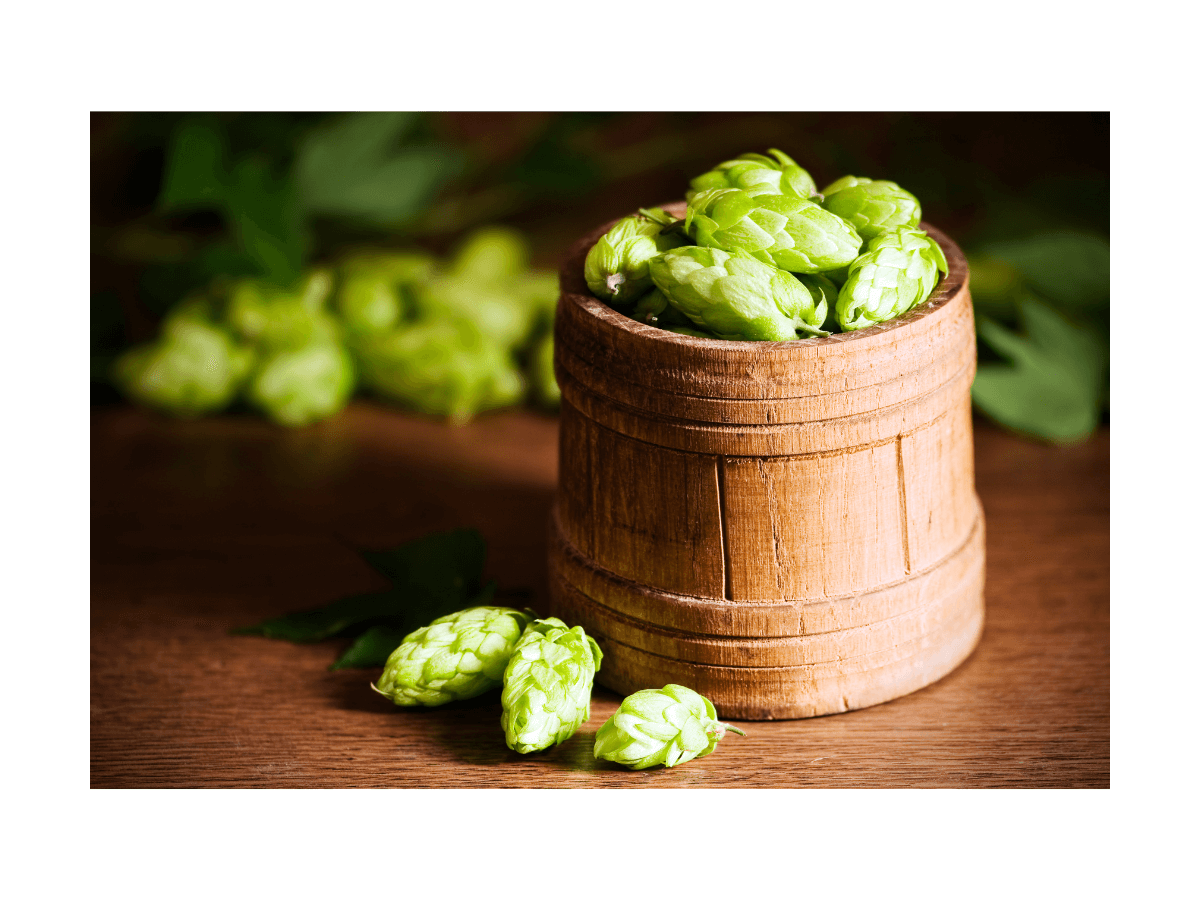Sparkling water, seltzer water, carbonated mineral water, soda water, tonic water, water, water, water, so many choices, but what is hop water?
The story I heard, which is very much third-hand knowledge or the worst game of telephone ever, is that brewers and staff at a brewery I can’t remember the name of would drink the beer they were making (obviously). Still, as you know, alcohol dehydrates you and, for some causes unwelcoming hangovers.
To combat this phenomenon, someone came up with the idea of infusing water with hops.
Not only will I explain what it is, but I will also let you know if it gives you a buzz (here’s a hint, it doesn’t), and for the curious, I will even provide a basic hop water recipe to make your own if you’re feeling adventurous.
If you purchase a recommended product after clicking one of the links in this post, I may earn a commission, but you pay nothing more.
What Is The Point of Hop Water?
I mentioned it above, but for many, it’s a great beverage alternative if you’re sober, sober-curious, or simply want to reduce your alcohol consumption.
Hop water gives you a taste similar to beer without all of the adverse effects like calories, alcohol, sugar, or other side effects that come from downing your favorite beers.
I find hop water to be incredibly refreshing on hot days because it’s like sparkling water, but instead of being infused with berry flavors, you get all of your favorite hop flavors in some of your favorite brews.
However, don’t be surprised if different hop water flavors have fruit-forward aromatics. That’s the beauty of hops and what they can do.
Does Hop Water Give You a Buzz?
No. Traditional beer is fermented; this process’s byproduct is ethanol (alcohol), which gives you a buzz when drinking your favorite IPA.
Hop water is infused with hops, usually carbonated, to give you a tasty fizzy drink, but since hops cannot intoxicate, the result is 0.0% ABV.
Is Hop Water Good For You?
While healthiness depends on personal health decisions, hop water contains zero alcohol, calories, sugar, or carbs.
Additionally, you’ve probably seen reports that carbonated drinks are bad for your teeth.
While this mainly applies to sugary drinks, that’s not true for carbonated water drinks like hop water. While you shouldn’t outright replace regular water with fluoride with carbonated water of any kind, sparkling water is safe for your teeth.
Why Is Hop Water So Expensive?
I can only imagine that hops have become more expensive along with other ingredients over the last few years, but I’m not one to pay $3 or more per can for what is essentially just water with essence.
I can justify paying close to regular beer prices for non-alcoholic beer because there is no difference in producing it; heck, NA beer may even be harder to make, so I don’t mind spending here.
From a marketing standpoint, there are probably more dollars spent here for companies to get these products in front of people hence the higher price point.
How To Make Hop Water
You can make hop water with stuff you already have in your kitchen, and it’s a relatively simple process. The only step you may find challenging is carbonating your hop water if you don’t already have a source like a SodaStream. If you plan to drink hop water reasonably often, having a carbonation source handy will be worth it.
Supplies and ingredients:
Instructions
- Add filtered water to the pot, and bring to a boil
- Boil for ten minutes
- Cool to 170F
- Reduce pH to 4.6 or lower. A small squirt of lemon juice should do (test with pH strip)
- Add about 2 grams per gallon of hops, 3-4 grams if you like it hoppier, and let stand for 20 minutes.
- Filter out hop particles using a fine strainer or mesh bag
- Cool to preferred serving temperature
- Carbonate
- Enjoy
Brewing Notes
You’ll want to use a citrus-forward hop like Lemondrop for best results. To be more specific, low alpha citric hops work best.
When bringing the pH down, start with a small squirt, then test with a pH strip—keep adding more juice until you get to your desired level.
Don’t be afraid to experiment with additional flavorings to spice things up, and have fun with it.
Cheers!

